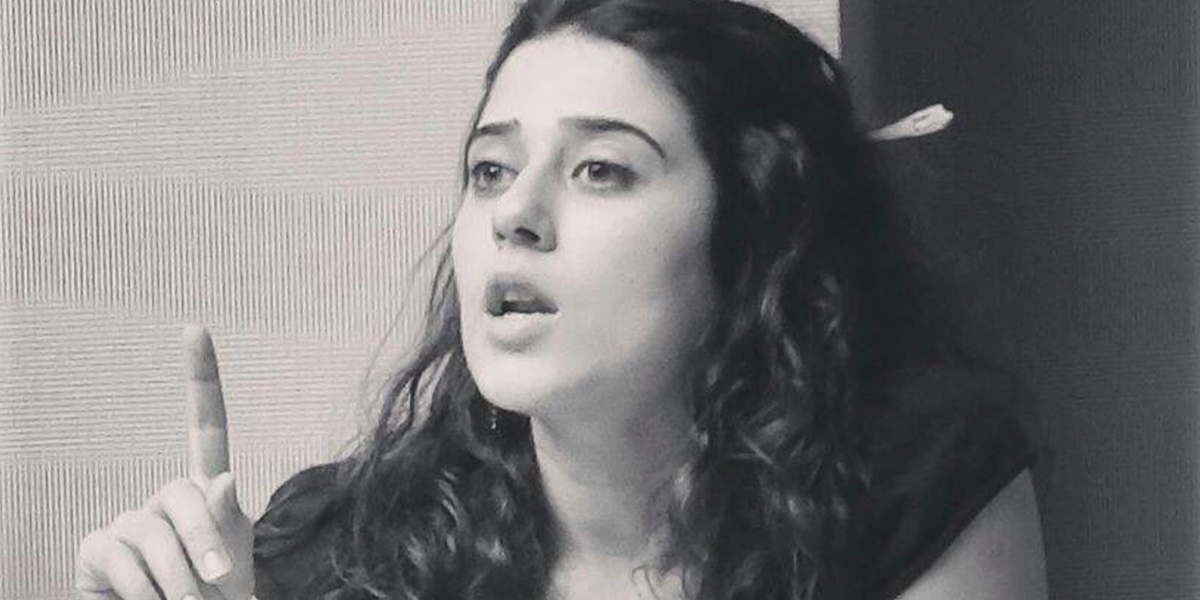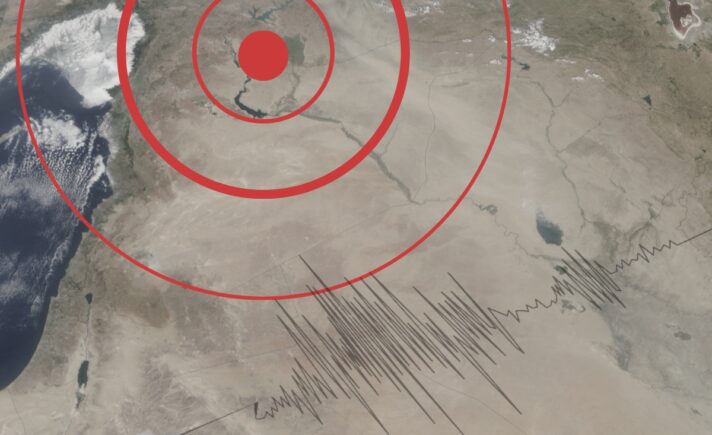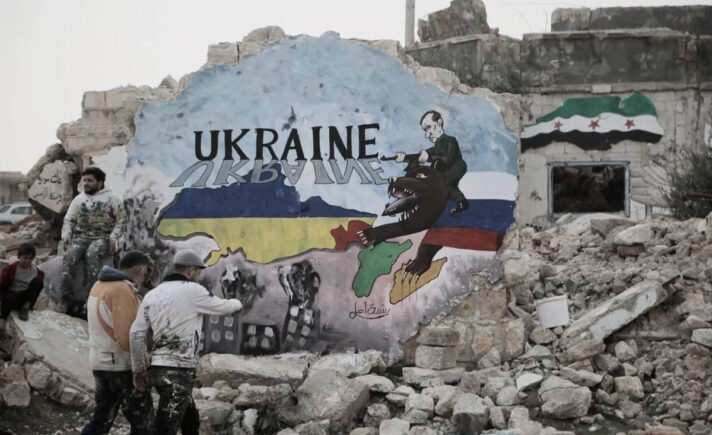The world we live in never ceases to amaze in its capacity for injustice, ugliness, and pain day after day. At times, this prompts us to withdraw from the public eye; to stop sharing our stories; and to take a step back in order to protect ourselves from the harm that only breeds feelings of uselessness, followed by indifference, towards any other issue that doesn’t concern us directly, regardless of its impact on our lives.
Sometimes, however, the overlap between the public and private spheres denies us our right to withdraw in this way, and limits our ability to lock away our personal and emotional losses, rendering them susceptible to all kinds of savagery.
Today, every Syrian finds themselves deluged with questions about the value of what has happened and is still happening; at all levels of their lives and social, political, and intellectual choices; and everything else pertaining to their fate as people born in a country ruled by a bloody president who turned our tragedy into a lifelong nightmare. Against all this, those of us directly affected find ourselves facing challenges too great to handle or surmount, especially when it comes to our greatest weakness: lost family members, and the complex factors preventing us from finding out what has happened to them. This in turn leaves us vulnerable to numerous forms of exploitation, against which we have only limited tools, in the absence of organized programs and initiatives to help families confront them. My own family recently underwent such an experience, which is what prompted me to write this article, to talk about the emotional and financial extortion to which relatives of the disappeared are exposed on a daily basis.
The case of Samar
“Hassan al-Suwaydi” (likely a fake name) used Facebook Messenger to contact one of my sisters. At first, he claimed simply to be a person of goodwill who knew the whereabouts of our younger sister, Samar, who was kidnapped along with her friend Muhammad al-Omar by the so-called Islamic State (ISIS) in the town of Atarib, west of Aleppo, in 2013. No information about her whereabouts has come to light since that day.
“Al-Suwaydi” said he just wanted to reassure us that Samar was alive, and that she was in a prison run by an ISIS-affiliated jihadist faction inside Syria, to which ISIS members had handed over their detainees when they were defeated more than two years ago.

The news may, on its face, have appeared positive. For us as Samar’s family, however, it was more like a bomb that detonated all the myriad fears, hopes, sorrows, agonies, and hundreds of other contradictory feelings that were and still are warring within us.
Al-Suwaydi tried to convince us he was putting himself at risk of being killed by sending us information about Samar, and that he just wanted us to know she was alive. He learned this, he said, from Samar’s “file” when she was transferred by ISIS to the faction, of which he said he was a member, though he refused to name the faction or provide any further details about it.
My other sister—the one with whom al-Suwaydi chose to communicate—is a mother of three. His messages turned her life upside down, overwhelming her with feelings that sapped her strength and broke her. She begged him for more information. He told her Samar had lost her memory, and was being held in a secret prison run by the faction, which had no intention of releasing her.
A carefully-prepared script
Al-Suwaydi began by blackmailing us emotionally. He told us it was our fault Samar was still in prison, saying we “hadn’t asked about her,” and had “neglected her case.” He wanted to make us feel he was truly well-intentioned, repeating that he was risking his life, especially when we asked him for video or photo evidence to corroborate his claims. That was impossible, he said, as there were surveillance cameras all over the prison in which she was held.
Only later did al-Suwaydi first mention he might be able to get Samar out by persuading “the brothers” to negotiate for a sum of money. The story he concocted shows the scam was carefully planned. By starting with the claim that Samar had lost her memory, he preemptively denied us the chance to request proof of life by asking a question to which only she would know the answer.
His supposed plan to hand us Samar was going to involve drugging her unconscious, so that the jihadists would have to take her to a hospital in Turkey’s Reyhanlı, where we could pick her up. To help him succeed, he told us to ask around about a drug that could potentially work this effect without posing a danger to Samar. He also told us to procure a forged short-term Turkish residence permit (known as a kimlik), or a passport with Samar’s details or those of someone resembling her, in order for her to be able to remain in Turkey. Finally, he requested that 50,000 US dollars be paid through a money transfer office one day prior to the date scheduled for Samar’s extraction. This amount, he said, would go to “the brothers” in the faction responsible for Samar in exchange for them allowing her to leave for treatment in Turkey.

Confronting the scam
It may seem obvious to an outsider that this was all a setup. For us at the time, however, it was like millions of volcanoes of conflicting emotions erupting all at once. We felt we had a potentially genuine chance to rescue Samar from hell, despite all our doubts about al-Suwaydi’s story. None of us was prepared to take responsibility for ending the negotiation and deciding once and for all that we were being conned.
In an attempt to protect our family from further pain, my sister sent a message to al-Suwaydi saying we would pay nothing unless we received video evidence of Samar recently alive, or documentation to prove she was indeed being held by the faction. She told him to make no further contact with anyone unless these conditions were met, saying we would reach out to him from my account a few days later. She then blocked him on Facebook.
After that, I myself took up the negotiations with al-Suwaydi on behalf of the family, in consultation with two friends, Muhammad al-Abdallah and Diab Sariya, to whom I am deeply grateful. They went through every detail with me, and gave me the full support needed to scrutinize al-Suwaydi’s claims, building on their own experience in the same regard.
One of the biggest challenges was preventing al-Suwaydi from contacting my mother, who was devastated by Samar’s abduction, not least since it happened in front of her eyes. Her life had revolved around those moments ever since.
Not content merely to impose his conditions on us, al-Suwaydi also stepped up his emotional blackmail, attempting to write to my second sister as well as my mother. Miraculously, we managed to delete his message from my mother’s account and block him before she read it. In it, he had tried to persuade her that Samar’s sisters were ruining her one chance to save her daughter.
Eventually, al-Suwaydi sent us what he said was Samar’s “file” held by the faction. I immediately forwarded it to Muhammad and Diab. It soon became clear that it was a forgery, as it contained spelling errors previously made by al-Suwaydi during his correspondence with us. The logo placed on the documents was also completely different to the actual one used by ISIS. The “file” had been authored by al-Suwaydi himself.


By now, we were certain the so-called Hassan al-Suwaydi was merely a criminal trying to extort us for money. I wrote to him to say the supposed “file” was not convincing, and told him to stop contacting my family, saying if he had video evidence to back up his story, he could send it to me and we would resume negotiations. He tried his emotional blackmail yet again, this time adding intimidation, saying it wasn’t for us to impose conditions; that we were in no position to be demanding proof or evidence; and that “the brothers” no longer wished to discuss the matter anyway.
Having realized we were not going to fall for his scam, “al-Suwaydi” then deleted his Facebook page, or blocked me from seeing it, and never contacted any of us again.
Renewed feelings of fear and unsafety
This attempt at extortion did not merely assail our family with pain and a raft of conflicting emotions. It went further, subjecting us to true terror, rekindling all the same fears of arrest, detention, and kidnapping we had felt in Syria. Such fears may be illogical, given that we all now live in safety outside Syria, but al-Suwaydi truly undermined our sense of safety nonetheless.
On the other hand, I was fortunate to have had friends who helped me and my family evade al-Suwaydi’s trap. Thousands of other families have not been so lucky, and have fallen victim to this kind of scam, with no one to support them and provide them sufficient information to avoid being swindled again in future.

Our battle is further complicated by the lack of information about those kidnapped by ISIS, especially after the group was declared vanquished by the US-led Coalition and its local ally, the Syrian Democratic Forces (SDF). We, the families of the ISIS abductees, feel that neither the Coalition nor the SDF has undertaken sufficient efforts to uncover the fate of our relatives or ensure their wellbeing during their military operations. Sites that were potentially ISIS-run prisons were frequently targeted with no regard for the lives of those inside them. Even after the fighting ended, and thousands of ISIS fighters were captured along with their families, the forces that detained them showed no serious interest in questioning them about the disappeared. On the contrary, the SDF has released former ISIS fighters at the behest of tribal intermediaries, or in accordance with murky deals and agreements about which little is known. Not once have we heard that these arrangements included information about the disappeared, despite the high likelihood that the detention facilities now housing ISIS leaders and members are a treasure trove of information, and that questioning them could help us uncover the fate of our loved ones, or the locations of former prisons or mass graves operated by ISIS. Moreover, beyond the Coalition, the SDF, and their vexing record on this question, the countries that have taken back citizens who were former ISIS fighters have been equally uninterested in asking after Syrian detainees when interrogating them.
Perhaps it is this mechanism of handling the issue of the disappeared at both the local and international levels, with its repeated abandonment of their relatives, and even some survivors themselves, that has made many of them lose interest in any kind of public advocacy for their cause—all the more so after the issue came to be treated like a political football by the parties to the conflict in Syria. The abundance of groups implicated in detentions, kidnappings, and forced disappearances has turned legitimate demands for uncovering detainees’ fates and holding perpetrators responsible into cheap partisan accusations exchanged by the feuding sides and their backers.
Elsewhere, the considerable interest in the disappeared from both local and international NGOs working in Syria has not had the hoped-for effect. Most were uninterested in involving detainees’ relatives in their work, or taking their needs into consideration. This led to a lack of projects to support these relatives and lighten the burden they bear when faced, for example, with attempts to extort them financially or blackmail them emotionally. In consequence, these NGOs’ treatment of the issue of the disappeared has remained deficient, lacking a clear strategy to protect families from undergoing similar experiences; lacking even mere “awareness-raising programs” or the mutual sharing of data between organizations.
The deficiencies of these NGOs, in addition to those of the political factions and de facto authorities that present themselves as alternatives to the Assad regime, make it all the more necessary to hold this conversation in public today; to evaluate these actors’ performance; and to urge them to expend greater efforts to save our relatives from whichever hell they may be in, or at the very least to stand with us in our daily battles to uncover the fates of our loved ones.
[Editor’s note: This article was originally published in Arabic on 8 April 2021.]





